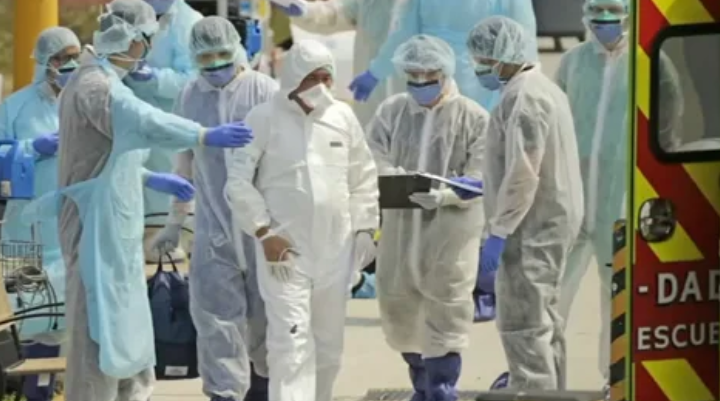When it comes to emergency preparedness, many people focus on natural disasters, fires, or medical emergencies. However, gas safety is an equally important aspect that often gets overlooked. For residents and businesses in need of official documentation, obtaining Gas Safety Certificates London is a crucial step. Gas-related incidents can be incredibly dangerous and potentially life-threatening, making it essential to include gas safety in your emergency preparedness plans, whether at home or in a business setting.
Understanding Gas Safety
Gas safety involves ensuring that all gas appliances, pipes, and connections are installed and maintained properly to prevent leaks, explosions, and poisoning. Both natural gas and propane are commonly used in homes and businesses, and each presents its own set of risks. Gas leaks can result from faulty appliances, improper installation, or damaged pipes, and they can lead to dangerous situations such as explosions or fires.
The Importance of Gas Safety in Emergency Preparedness
Incorporating gas safety into emergency preparedness plans helps mitigate these risks and ensures that you are prepared for any potential gas-related emergencies. A well-thought-out gas safety plan can make a significant difference in protecting lives and property.
Preventing Gas Leaks and Explosions
The first step in gas safety is prevention. Regular maintenance and inspections of gas appliances, connections, and pipelines can help identify and address potential issues before they become serious problems. For homes, this means scheduling annual inspections with a qualified technician. For businesses, this may involve more frequent checks, especially if gas is a significant part of operations.
Educating and Training
Another crucial aspect of gas safety is education. Everyone in the household or workplace should be aware of the signs of a gas leak, which include a distinct odor, hissing sounds, or dead plants near a gas line. Additionally, they should know how to react in case of a leak. This includes turning off the gas supply, evacuating the area, and contacting emergency services.
For businesses, staff training is essential. Employees should be trained in gas safety protocols and emergency procedures. This ensures that they are prepared to act quickly and effectively in case of a gas-related emergency.
Creating a Gas Safety Plan
A comprehensive gas safety plan should be part of your overall emergency preparedness strategy. Here are the key elements to include:
Inspection and Maintenance Schedule
Create a regular schedule for inspecting and maintaining gas appliances and connections. This should be part of your routine home or business maintenance. Ensure that all inspections are performed by qualified professionals who can identify and rectify any potential hazards.
Emergency Response Procedures
Develop clear procedures for responding to a gas leak or other gas-related emergencies. This includes knowing how to shut off the gas supply, evacuate the premises, and contact emergency services. Post emergency contact information and procedures in visible areas so that everyone knows what to do in case of an emergency.
Gas Detection Equipment
Consider installing gas detection equipment in key areas. These devices can alert you to the presence of gas in the air and provide an early warning of a potential leak. Ensure that detectors are maintained and tested regularly to confirm their functionality and reliability.
Gas Safety for Businesses
For businesses, gas safety can be more complex due to the scale of operations and the potential use of gas in various processes. Businesses should have a detailed gas safety plan that includes:
Compliance with Regulations
Ensure that your business complies with all local and national gas safety regulations. This may involve specific standards for gas appliances, installations, and maintenance. Keeping up with regulatory requirements helps prevent legal issues and ensures a safe working environment.
Risk Assessments
Conduct regular risk assessments to identify potential gas hazards in your business. This includes evaluating the condition of gas appliances, pipelines, and storage areas. Address any identified risks promptly to prevent accidents and ensure safety.
Staff Training
In addition to general training on gas safety, provide specialized training for employees who work with gas appliances or systems. They should understand the specific hazards associated with their tasks and know how to handle them safely.
Conclusion
Gas safety is a crucial component of any emergency preparedness plan for both homes and businesses. By incorporating regular inspections and maintenance, educating individuals, and developing clear emergency response procedures, you can significantly reduce the risk of gas-related incidents.
For homes, this means ensuring that appliances are in good working order and that everyone knows how to react in case of a gas leak. For businesses, it involves adhering to regulations, conducting risk assessments, and providing specialized training for employees.
Ultimately, being proactive about gas safety not only protects lives but also safeguards property and reduces the potential impact of emergencies. Taking the time to include gas safety in your preparedness plans is a vital step toward ensuring a safe and secure environment for everyone, If you want to stay updated with posts like this, please follow us on DISCOVER TRIBUN.
Keep an eye for more news & updates on DiscoverTribune!


